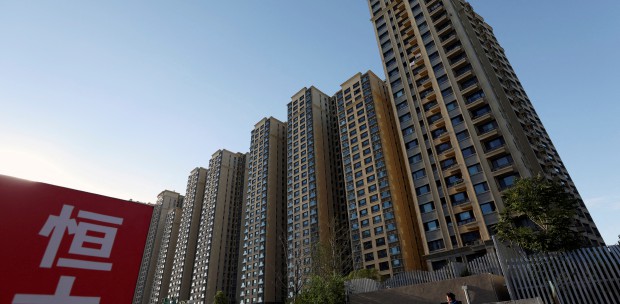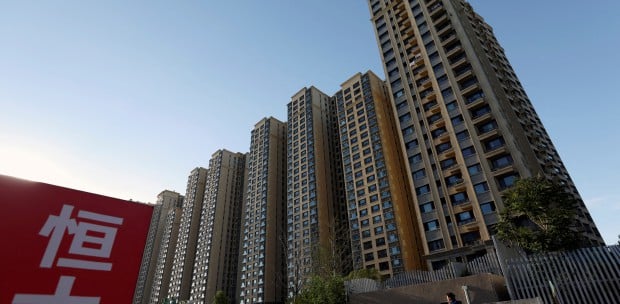China's residential property slump dragged on last month as the debt crisis at China Evergrande Group spread to other developers, keeping buyers away.
Home sales by value tumbled 16.9 per cent in September from a year earlier, following a 19.7 per cent drop in August, according to Bloomberg calculations based on National Bureau of Statistics data released Monday. Real estate investment slid for the first time since the onset of the coronavirus shut swathes of the economy at the start of last year, down 3.5 per cent from a year earlier, calculations show.
The property slowdown is one of many headwinds facing the Chinese economy, which saw growth slow last quarter, separate figures showed. Government efforts to curtail developers' leverage has exacerbated a cash crunch at Evergrande that's now spreading to other firms, prompting buyers to think twice about putting down deposits for homes that are yet to be built.
"No one is buying new properties because they are getting afraid," Helen Qiao, chief Greater China economist at Bank of America Corp, said in an interview on Bloomberg Television. "So we could see further downside on the economy."
The sales slump may fuel a vicious cycle by worsening the cash shortage at developers and forcing them to offer bigger discounts. That in turn could reduce home prices in a country where people keep a large chunk of their wealth in real estate. Mainland property stocks declined on the report.
Homebuyers already face the threat of declining prices after years of gains. Measures of price growth, housing starts and sales have moderated significantly in recent months, Moody's Analytics notes in a recent report. Evergrande's sales alone probably plunged 93 per cent in September from a year earlier, according to a Citigroup Inc. report based on China Real Estate Information Corp. figures. China is scheduled to report home price data for 70 major cities on Wednesday.
China's central bank broke its silence on the Evergrande crisis last week, saying risks to the financial system stemming from the developer's struggles are "controllable" and unlikely to spread. At a virtual meeting of the Group of 30 on Sunday, People's Bank of China Governor Yi Gang said Evergrande's liabilities were spread across "hundreds" of entities in the financial system so that there is "not much concentration."
China's government has been trying to rid the property sector of excess debt, based on the notion that homes are for living in rather than speculation. Yet carrying out that task is a delicate exercise in a country where the broader property sector makes up about 23 per cent of gross domestic product, according to estimates by Goldman Sachs Group Inc.
Regulators have begun easing restrictions on home loans, a move that could help first-time buyers and boost transactions following an unprecedented cap on banks' exposure to the real estate sector. Officials told some major banks last month to accelerate approval of mortgages in the fourth quarter, Bloomberg reported last week.
China's developers have faced a wave of credit rating downgrades and now account for about half of the world's distressed debt, according to data compiled by Bloomberg. Contagion fears intensified over the past two weeks after a surprise default by Fantasia Holdings Group Co. and a warning from Sinic Holdings Group Co. that its default was imminent. - Bloomberg





